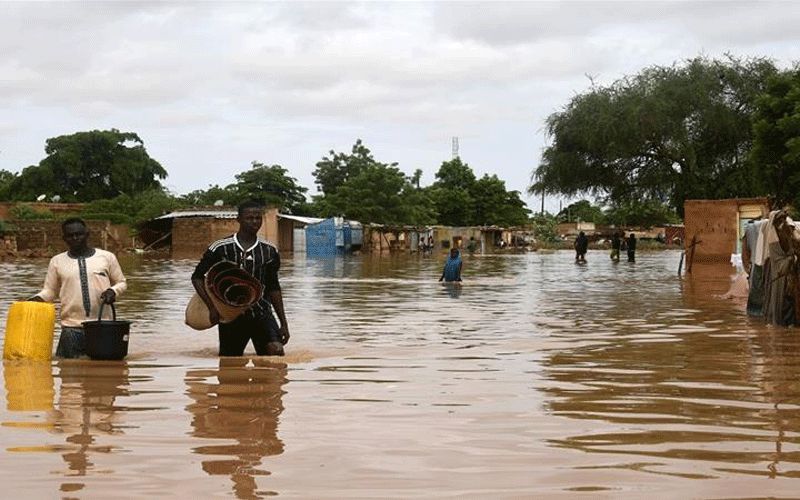In his jurisdiction, for instance, Christians of St. Paul Harobanda and St. Joseph de Saga Parishes, which are located along the banks of the Niger River have been left without shelter, the Archbishop recounts.
“The community of the Sisters of Charity of Mother Teresa is currently housed in the Bishop's House, while the patients of the dispensary they own have been transferred to other dispensaries and hospitals,” he says.
River Niger, the longest river in the west African country, burst its banks in August following heavy downpour that the nation has been witnessing since July. The cities of Maradi, Agadez and Niamey, the capital, have been most affected.
A September 11 joint report by Niger’s Ministry of Humanitarian Affairs and Disaster Management, UN’s Office for the Coordination of Humanitarian Affairs, Relief web, UN’S Operational Satellite Applications Program indicates that 52,404 households representing 432,613 individuals have been affected by the floods.
Some 36,155 houses have been destroyed by the waters and 58 casualties recorded, the September 11 report indicates.
On September 11, the Government of Niger announced a CFA 372 billion (US$672 million) integrated food response for flood victims and launched an appeal to come to their assistance.
In the September 15 news report, Archbishop Lompo expresses his concerns about the state of things saying the situation may deteriorate as the humanitarian workers have limited resources to aid the flood victims who are “crammed into classrooms.”
“If we don't set up tents, if we don't give food to the population, if we don't take charge of the health of these families, especially in the context of a health crisis, the situation is likely to deteriorate," the 53-year-old Nigerien Archbishop says.
The heavy rains and the deadly effects represent “yet another hard blow for our country, which for a number of years has been threatened by terrorism and repeated food crises,” the Local Ordinary of Niamey Archdiocese says.
According to a report published September 5, UNICEF has been partnering with the Japanese Government in supporting Niger’s Government to reach out to about 1,500 households “with non-food items such as blankets, carpets, mosquito nets, soap, water containers, menstrual hygiene management kits, to affected people in the regions of Zinder, Maradi, Tahoua and Diffa.”








